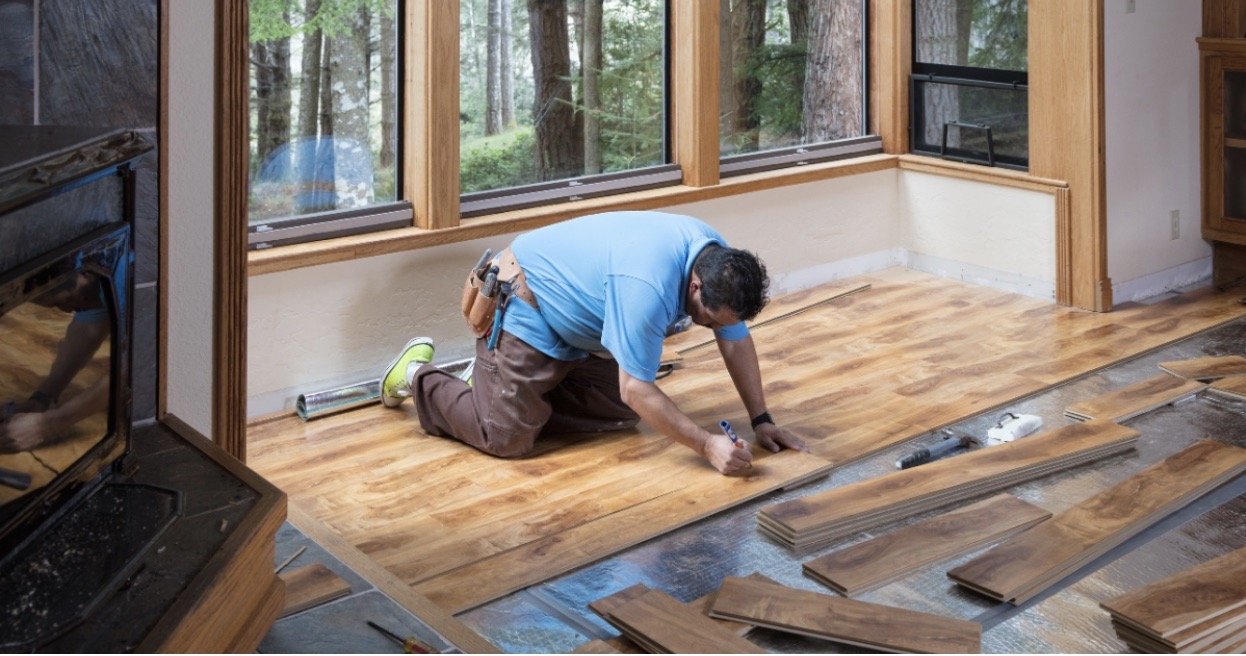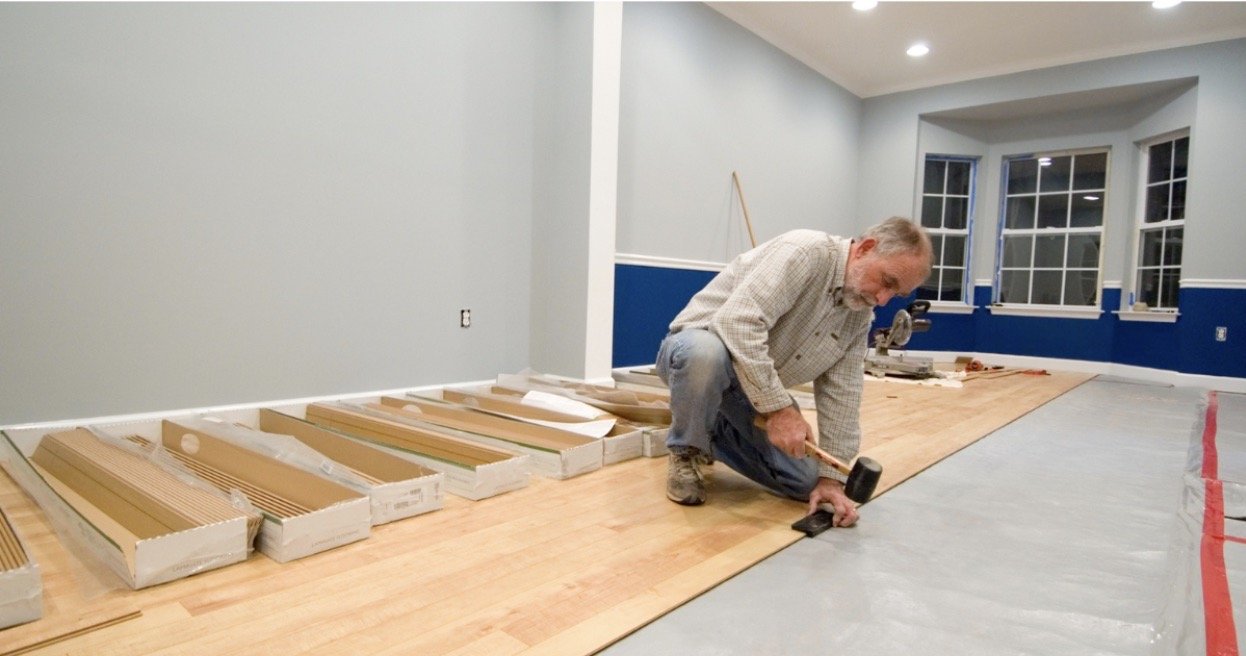Flooring Installation Guide: What Homeowners Need to Know
Flooring plays a critical role in the look, feel, and functionality of your home. From the moment you step through the door, your floors set the tone for the entire space. Whether you’re upgrading outdated surfaces or building your dream home from scratch, understanding the flooring installation process is crucial for making informed, long-lasting decisions.
At Smart Remodeling Solutions, we bring over 30 years of hands-on experience to every project, helping homeowners in the Houston area choose the right flooring materials and installation methods to suit their lifestyle and budget.
In this guide, we’ll walk you through everything you need to know before, during, and after flooring installation, including the pros and cons of different materials, budgeting tips, and why hiring experienced flooring contractors matters.
1. Understanding the Basics of Flooring Installation
What is Flooring Installation?
Flooring installation is the process of laying a chosen flooring material, such as hardwood, laminate, tile, or vinyl, across a room or entire home. The installation process can vary significantly depending on the type of flooring and the condition of the subfloor.
Each material has unique preparation, fitting, and maintenance requirements. A professional flooring installer will assess your space, recommend appropriate materials, and handle the installation to ensure longevity and safety.
2. Common Types of Flooring Materials and Their Pros and Cons
Choosing the right material is the first big decision in your flooring journey. Here’s a breakdown of the most popular options:
A. Hardwood Flooring
Pros
Timeless and aesthetically pleasing
Increases home value
Durable when properly maintained
Cons
Prone to scratches and water damage
Higher cost for materials and installation
B. Laminate Flooring
Pros
Affordable and DIY-friendly
A wide variety of styles mimicking hardwood or stone
Resistant to fading and scratches
Cons
Not water-resistant unless specifically rated
Cannot be refinished
C. Tile (Ceramic and Porcelain)
Pros
Water-resistant and easy to clean
Ideal for kitchens, bathrooms, and outdoor areas
Long lifespan when properly installed
Cons
Cold and hard underfoot
Grout maintenance required
Scientific note
According to Tile Council of North America (TCNA), Porcelain tiles are denser and less porous than ceramic tiles, offering better resistance to moisture and frost, which is particularly significant in climates with considerable temperature variation.
D. Vinyl and Luxury Vinyl Plank (LVP)
Pros
Budget-friendly with waterproof options
Soft and quiet underfoot
Easy to install and replace
Cons
May dent with heavy furniture
Shorter lifespan compared to hardwood or tile
E. Carpet
Pros
Warm and comfortable
Excellent sound insulation
Budget-friendly
Cons
Difficult to clean and maintain
Prone to staining and allergens
3. Step-by-Step Guide to the Flooring Installation Process
Whether you're working with a flooring contractor or tackling a DIY project, the general steps are the same:
Step 1: Site Inspection and Measurement
A professional measures your space and inspects the subfloor for level, moisture, and structural integrity.
Step 2: Material Selection
Based on your lifestyle, aesthetic goals, and budget, your contractor will help you select the best flooring type.
Step 3: Subfloor Preparation
The existing flooring may need to be removed.
The subfloor is cleaned, leveled, and repaired as needed.
Step 4: Acclimation (for hardwood or laminate)
Materials are left in the home for 48–72 hours to adjust to humidity and temperature.
Step 5: Flooring Installation
Depending on the flooring type, methods may include glue-down, floating, or nail-down installation.
Step 6: Finishing Touches
Baseboards and trim are reinstalled.
The floor is cleaned and inspected.
4. Cost Breakdown: What to Expect
The cost of flooring installation depends on several factors:
Flooring Type
Hardwood
Laminate
Ceramic or Porcelain Tile
Luxury Vinyl Plank (LVP)
Carpet
Avg. Material Cost (per sq. ft.)
$5 – $15
$1 – $5
$2 – $10
$2 – $7
$1 – $4
Avg. Installation Cost (per sq. ft.)
$4 – $8
$2 – $4
$5 – $10
$2 – $5
$1 – $3
Tip
Always factor in underlayment, transitions, and the removal of old flooring when calculating your total budget.
5. Questions to Ask Before Hiring a Flooring Contractor
Finding the best flooring installers ensures you get quality results and long-term performance. Here are essential questions to ask:
Are you licensed and insured?
Do you offer a written estimate and timeline?
Can I see examples of your recent work?
What types of flooring do you specialize in?
Do you offer a warranty for the installation?
Smart Remodeling Solutions offers all of the above, plus transparent pricing and experienced design consultation.
6. Flooring Maintenance Tips for Long-Term Success
For Hardwood
Use felt pads on furniture
Avoid wet mopping; use a dry or damp clot.
Refinish every 7–10 years to maintain shine
For Tile
Seal grout annually
Clean with pH-neutral cleaners
Avoid abrasive brushes
For Vinyl
Sweep regularly to prevent grit damage
Mop with mild soap and water
Avoid dragging furniture
7. When to Replace vs. Refinish Existing Floors
Not all floors need replacement. Refinishing already installed cabinets or floors can be a more cost-effective option.
Consider refinishing if
Hardwood has scratches but no deep gouges.
Surface wear is uniform
You want a new stain color without replacing materials
Replace if
Water damage or warping is present
Subfloor issues exist
The material has reached the end of its life cycle.
8. Related Services That Add Value to Flooring Projects
Smart Remodeling Solutions also offers complementary services to enhance your space:
Interior Painting Contractor
Repaint your space for a cohesive new look
Install Ceramic or Porcelain Tile
Ideal for bathrooms and backsplashes.
Paint, Varnish, or Stain Interior Surfaces
Update baseboards, trims, or wood stairs
Tile Repair or Replacement Services
Fix damaged sections without replacing the entire floor
Outdoor Remodeling Contractor
Extend flooring upgrades to patios and outdoor kitchens
9. Signs of a Quality Flooring Installation
Look for these signs of a job well done:
No gaps or uneven boards
Consistent transitions between rooms
Securely attached trims and moldings
Smooth, clean finishes without residue or damage
10. Why Choose Smart Remodeling Solutions?
When it comes to flooring and home remodeling, Houston homeowners trust Smart Remodeling Solutions for good reason:
Over 30 years of experience
Transparent pricing with no surprises
Personalized design consultation
Full-service remodeling expertise from kitchens to bathrooms to flooring
Reliable, vetted contractors with a reputation for excellence
We don’t just install flooring, we craft spaces that feel like home.
Flooring That Works for Your Life
Choosing the right flooring is about more than style; it's about function, comfort, and lasting value. By understanding the options, planning the installation process, and working with qualified flooring experts, you can feel confident in your investment.
At Smart Remodeling Solutions, our goal is to make the remodeling process transparent, collaborative, and successful, no matter your budget or vision.
Let’s Get Started on Your Dream Floors
Whether you’re updating your entire home or refreshing a single room, we’re here to help. Visit www.smartremodelingsolutions.com to schedule a consultation and explore our wide range of flooring and remodeling services.
Smart Remodeling Solutions
Great Value, Fair Pricing, and Beautiful Results Every Time.




